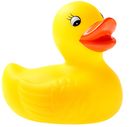SOILGUARD Sustainable soil management to unleash soil biodiversity potential and increase environmental, economic and social wellbeing
SOILGUARD envisages a future where the conservation of soil biodiversity and the environmental, economic and social wellbeing of EU biogeographical regions is guaranteed. Unsustainable management and climate change are increasing land degradation and threatening soil biodiversity. Urgent action is required to mainstream sustainable soil management practices and the perception of soil biodiversity as a key nature-based solution to face land degradation and climate change stressors. The efficacy of this call to action depends on addressing major knowledge gaps related to biodiversity and soil-mediated ecosystem services. Soil biodiversity assessment emerges as a key challenge to be overcome. SOILGUARD will co-create a conceptual and analytical framework with the potential to become the global standard for future assessments of soil biodiversity status and its contribution to soil multifunctionality and human wellbeing. This framework will be validated in an innovative experimental design, combining multiple study sites across biomes and regional land degradation gradients with in-situ climate change simulations. Thus, creating the evidence to fill the gaps of knowledge and quantify the environmental, economic and social consequences of unsustainable soil management. All knowledge co-created will be shared through SOILGUARDIANS, a predictive tool based on the causal links between soil biodiversity, soil multifunctionality and wellbeing to support stakeholders on the transition to sustainable management.
In this project, the IÖW is leading work package 4 on the “Valuation of soil-mediated ecosystem services” together with the University of Potsdam. The main objective is to develop and apply an integrated valuation approach to estimate the region-specific economic and socio-cultural value of soil-mediated ecosystem services, in monetary and non-monetary terms. In a first step, region-specific factors that influence the value of soil-mediated ES (e.g., knowledge, perception, motivations, attitudes) and soil management decisions are identified. The soil-mediated ecosystem services that are perceived essential by multiple stakeholder will then be estimated using different valuation approaches. Provisioning and regulating ecosystem services are valued using cost-based methods. The economic value of cultural ecosystem services as well as the social value of soil-mediated ecosystem services is estimated based on an empirical survey that will elicit preferences and perceptions on different land management options influencing soil biodiversity and the associated delivery of ecosystem services. In a subsequent step, project partners will use these valuation results in order to predict prospective ecosystem services provision. In addition, the research results contribute as an informational basis for policy briefs on sustainable soil management.
In addition to the IÖW and the University of Potsdam, numerous other institutions are involved in the international project, which is coordinated by the Acondicionamiento Tarrasense Association (LEITAT):
- Institut national de recherche pour l’agriculture, l’alimentation et l’environnement (INRAE), Paris Cedex
- Eidgenössische Technische Hochschule Zürich (ETH), Zürich
- Wageningen University & Research (WUR), Wageningen
- Universiteit van Amsterdam (UvA), Amsterdam
- Universidad de Alicante (UA), San Vicente del Raspeig
- Inagro, Provinciaal Extern Verzelfstandigd Agentschap in Privaatrechtelijke Vorm (INAGRO), Roeselare
- Teknologisk Instituts (DTI), Taastrup/Aarhus
- Latvijas Lauksaimniecības universitāte (LLU), Jelgava
- Universidad Miguel Hernández de Elche (UMH), Elche
- Szent István University (SZIU), Gödöllő
- Luonnonvarakeskus (LUKE), Helsinki
- Agriculture and Food Development Authority (TEAGASC), Carlow
- Instituto Nacional de Tecnología Agropecuaria (INTA), Buenos Aires
- Faculté des Sciences de l’Université de Yaoundé (FSUY1), Yaoundé
- Thailand Institute of Scientific and Technological Research (TISTR), Pathum Thani
- Ethniko Asteroskopeio Athinon (NOA), Athen
- WINGS ICT Solutions Information & Communication Technologies IKE (WINGS), Athen
- European Landowners' Organization (ELO), Brüssel
- Cooperativas Agro-alimentarias de Espana u de Coop Sociedad Cooperativa (SCOOPS), Madrid/Brüssel
- Union internationale pour la conservation de la nature et ses ressources (UICN), Gland
- UK Centre for Ecology & Hydrology (UKCEH), Bangor
More information: https://soilguard-h2020.eu/
Briefly explained: flyer on the SOILGUARD project



![[Translate to Englisch:] SOILGUARD](/fileadmin/user_upload/BILDER_und_Downloaddateien/Projekte/2021/SOILGUARD_Logo.png)
